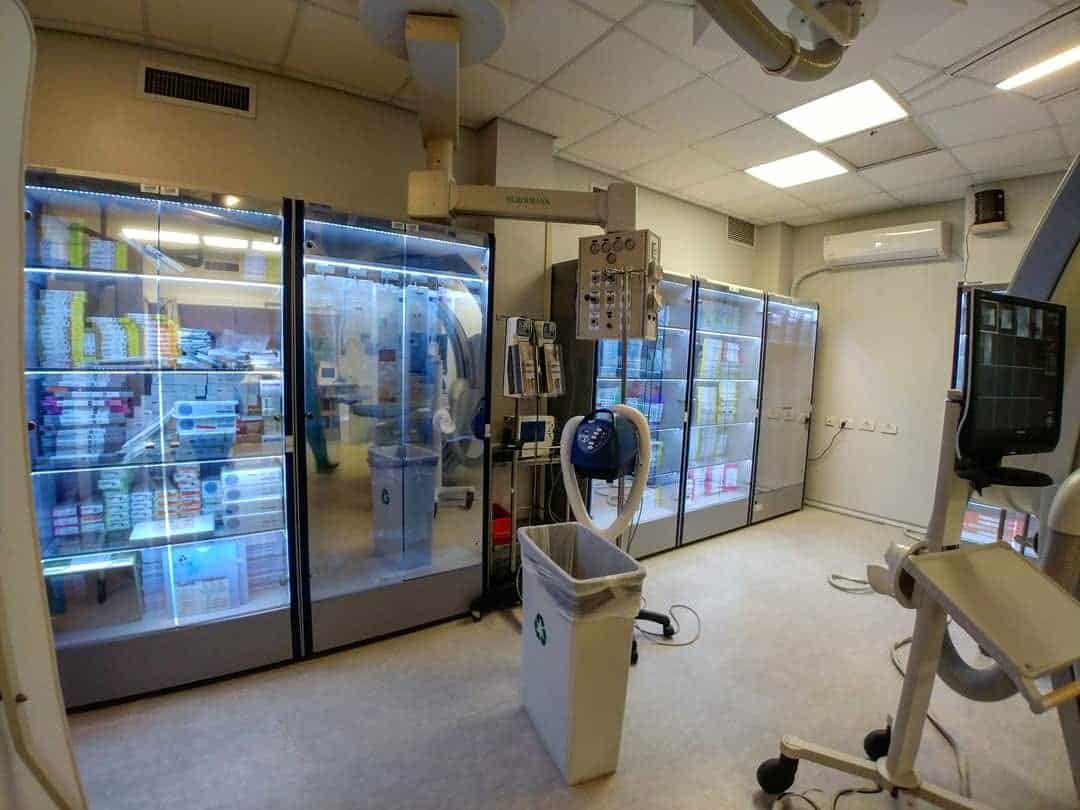What’s inside:
The expiry management of medical devices and implants is a patient safety issue that healthcare providers simply can’t afford to get wrong. This blog explores:
- The tasks involved in managing expiry in the surgical setting
- The implications of getting it wrong
- The key factors in best practice for healthcare expiry management
- Statistics on the cost of expiry-related litigation in hospitals
Medical device and implant management is a critical issue that requires constant attention from healthcare professionals, and especially from nurses, who are at the forefront of patient care.
This blog explores the role nurses play in managing the expiry of medical devices and implants in the surgical setting.
What are implant expiry dates?
Medical implants cover a wide range of items, including artificial joints, pacemakers, stents, and catheters. Every implant has an expiry date, which is determined by the manufacturer and is based on factors such as the materials used and the sterilization process. The expiry date is crucial as it ensures the safety and effectiveness of the implant.
The role of the nurse in managing expiry in surgical areas
Nurses are responsible for many tasks in the surgical setting, including managing the expiry of medical implants.
This includes ensuring that they are stored and managed correctly, and that involves removing any expired implants from inventory.
But how can you ever be sure that every single expired item was successfully removed?
As a final precaution, nurses are the last line of defense, checking the expiry date of each implant before use in the procedure or surgery.

Why expiry management in healthcare is important
Patient safety is a high priority for healthcare providers, and expiry management is a crucial element of patient safety activity relating to the management and control of medical inventory.
Health systems, hospitals and ambulatory care providers are all well aware of the repercussions of getting expiry management wrong.
Expired medical implants cannot be trusted. They may be ineffective or cause actual harm to patients, leading to health complications or, in severe cases, even death.
Using expired medical implants can lead to litigation and medical malpractice claims, which can be costly for both the healthcare facility and the healthcare professional involved.
Expiry management mistakes do unfortunately happen, but they are actually entirely preventable.
Let’s take a look at best practice in medical device expiry management and the most effective ways to have tighter control of expiry management.
Medical device expiry management best practice
Expiry management needs to be carried out properly and that involves putting systems and procedures in place that provide a layer of protection.
Because there are so many factors in volved in expiry management, healthcare providers need to periodically review their approach, in order to stay up to date and effective.
There are several key elements of activity that are considered best practice and lead to strong expiry management.
We’ll take a look at these now.
Key areas of hospital expiry management
There are four main areas that expiry management procedures need to focus on.
- The identification of expired items
- The removal of expired items
- The rotation of stock items, so that soonest-to-expire items are used first
- ‘Last chance’ checking at the point of care

Organizations need to have a quick and accurate process in place for all four of these areas to reduce risks relating to expiry management.
Expiry management is labor intensive
Healthcare organizations that use manual methods to manage expiry will have staff going through all the stock items in storage and checking the expiry dates on each and every item. They will need to flag up soon-to-expire items and remove items from the shelves that are past their expiry date.
In a recent discussion with a former Director of Perioperative Services, it transpired that this task took one or two staff, two days a month to complete- with an estimated cost of around $3,700 a year.
In addition, it was acknowledged that this manual method was not efficient as the OR area suffered from $80,000 a year wastage costs due to expired products.
The cost of an inefficient expiry management procedure for this OR suite was $83,700 a year.
That’s a very common picture. So, it’s good to know that new technology can transform all that chaos into control.
There’s certainly much to be gained by automating the management and tracking of implants!
Being able to have expiry information at your fingertips for your entire medical device and implant stock provides a whole new level of protection.

Eliminating the Hassle: Technology Solutions for Effective Expiry Management in Hospitals
Healthcare facilities using a good quality automated inventory management system are able to track and monitor their medical implants, reducing the risk of expired implants being used and reducing their expiry wastage to zero.
They don’t need to rely on imprecise manual checking of stock items, freeing up staff for more important responsibilities.
Because these providers are able to view, manage and control their inventory, they can prioritize the use of items nearing expiry. This will prevent stock items from becoming obsolete and avoid high wastage costs.
The most efficient providers will have a two-pronged approach – automated inventory tracking for stock items in smart cabinets, plus a robust system at the point of care, that alerts the nurse to any expired items prior to usage.
Automating expiry management is the most efficient way to manage expiry. It saves labor, reduces wastage costs and, most importantly, it can even save lives.

The cost of getting it wrong
Statistics on the cost of litigation related to expiry management are hard to come by, but the cost can be significant.
In 2017, a US hospital settled a medical malpractice claim for $12 million,
after a patient was implanted with a defective device that had been expired for over two years.
The cost of litigation can be damaging to both the healthcare facility’s reputation and financial stability, highlighting the importance of effective expiry management.
Best practice medical implant expiry management
Managing the expiry of medical implants is a critical aspect of patient care.
Inefficient expiry management presents a high risk to organizations, staff and patients.
By following best practice, healthcare providers can reduce the risk of expired medical implants being used, ensuring the safety and well-being of their patients.
Best practice tells us that medical devices and implants need careful digital tracking, including at the point of care.
See our video on how Snap & Go acts as the last line of defense at the point of care:
If you want advice on the best way to improve expiry management for your organization, let’s talk about how technology can add speed and efficiency to the management of medical device expiry management.






